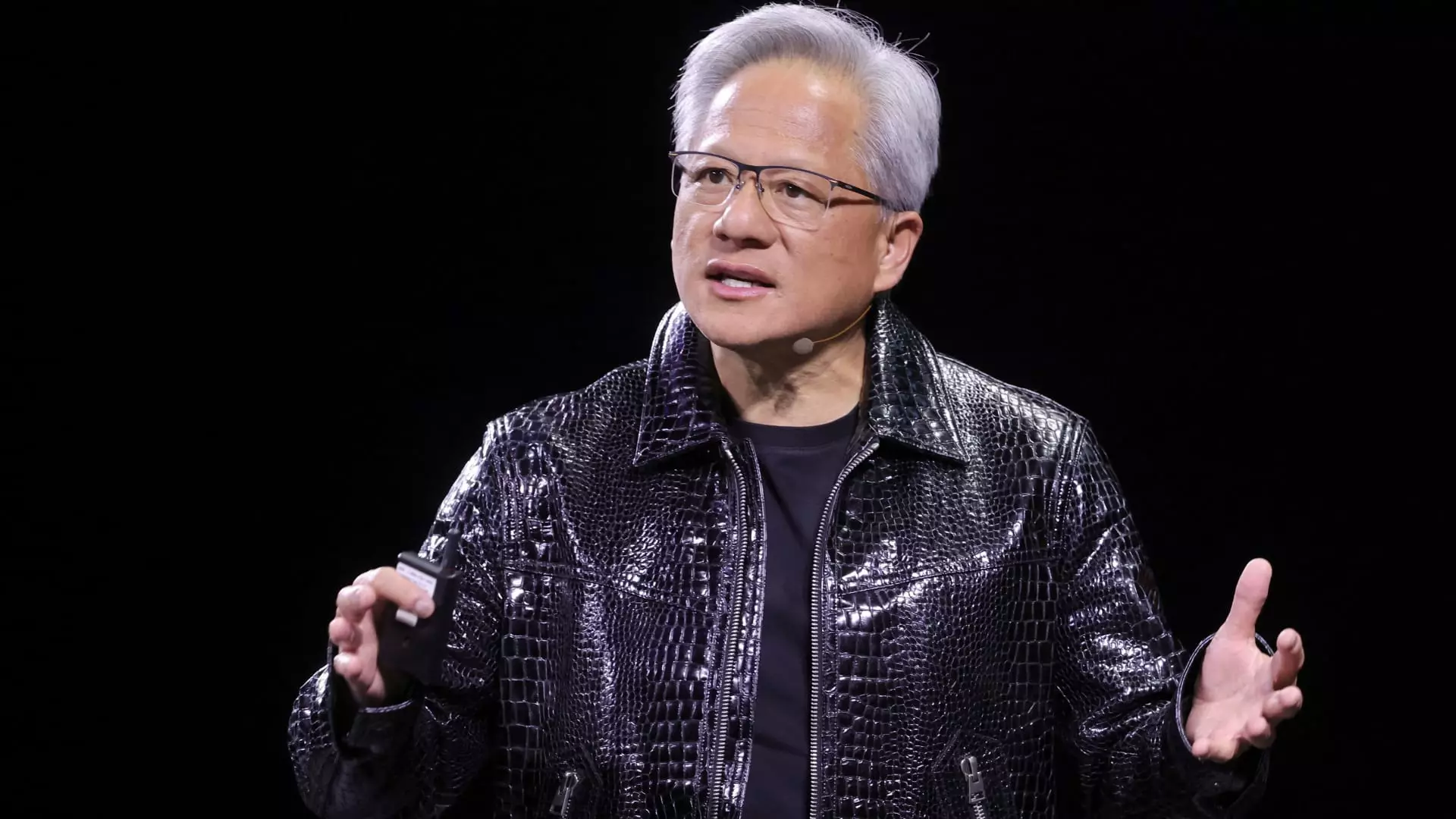Quantum computing has long been the mesmerizing subject that has intrigued both scientists and tech enthusiasts alike. However, the expectations set forth regarding its timeline for practical application have often proven to be a double-edged sword. Jensen Huang, CEO of Nvidia, recently attempted to recalibrate the conversation surrounding quantum computing at his company’s inaugural “Quantum Day.” Instead of providing the anticipated solace to investors weary from erratic market responses, Huang’s remarks spiraled into a significant decline in quantum-related stocks. The day offered more confusion than clarity, leading one to wonder whether any bona fide progress can occur in an industry plagued by misplaced optimism and vague timelines.
Huang’s earlier assertion, which suggested a timeline of at least 15 years before quantum computers become truly effective, was undermined by the reality that every optimistic projection seems to backfire spectacularly. The dip in stock prices—D-Wave fell by 18%, and IonQ and Rigetti lost nearly 10%—underscores a lingering skepticism toward this nascent technology. Investors who once saw hope in Nvidia’s growth narrative were left grappling with uncertainty, showcasing once again that talk is cheap, particularly in an arena as revolutionary yet unpredictable as quantum computing.
A Strained Relationship Between Reality and Expectations
What stands out about Huang’s latest proclamation is his admission of surprise regarding how his initial comments swayed market behavior. When a prominent CEO openly acknowledges his miscalculations in predicting the market’s reaction, it’s a stark reminder of the fragility of investor confidence. Huang’s attempt to reframe quantum computing as a supplementary technology rather than a revolutionary change—as if to soften the blow of prior proclamations—might seem sensible in theory, but does little to assuage investor anxieties.
The reality is that many in the sector regard quantum computing as a goldmine of potential, but this goldmine seems perpetually out of reach. Huang’s suggestion to rebrand quantum computing as a tool that complements classical systems might add a layer of realism, yet he risks relegating an already convoluted narrative to an even more complex premise that may confuse potential investors further. If the core purpose of quantum computing is lost in translation, financial support for the sector could dwindle, stifling the very innovation intended.
A Reflection on Nvidia’s Strategy
Nvidia, as a major player in both classical and quantum computing, has a vested interest in seeing quantum flourish, primarily as its powerful GPUs can act as facilitators in quantum simulations. Furthermore, their commitment to constructing a research center in Boston, aligned with significant academic institutions, is a strategic move that attempts to anchor them within the quantum realm. However, this initiative alone is not a silver bullet. With growing skepticism around quantum computing, Nvidia may need to pivot significantly, embracing a more pragmatic dialogue that levels with investors regarding both the challenges and the likely lengthy timeline for fruition in quantum technology.
The brimming enthusiasm that characterized the early hype surrounding quantum computing has shown alarming signs of deflation. In scenarios where companies like D-Wave and IonQ are treated as collateral damage during Nvidia’s attempts to abate market fear, one must question the sustainability of such an ecosystem. As it stands, investors are not just doubtful—they appear increasingly disillusioned. Indeed, the Quantum Defiance ETF’s dismal performance, having dropped over 4% this year, signals an ongoing struggle within the sector and questions the very foundation upon which this hope for quantum was built.
Confronting the Stakes
What the quantum computing industry desperately needs is not more optimistic branding or vague promises but a dose of unvarnished realism. It must face the stakes involved and acknowledge that technological advancement is rarely, if ever, linear. The conversation initiated by Huang was certainly an attempt to navigate the treacherous waters of investor expectations, but it ultimately served as a reminder that the dream of quantum computing may be more of a marathon than a sprint.
To genuinely cultivate interest and investment, leaders in this space must accept that fostering trust will require transparency, honesty, and a willingness to invest in the longview. If Huang and others truly believe in the potential of quantum, they must also engage in the difficult task of tempering expectations. Otherwise, the quantum computing narrative could dissolve into mere folly, and that would be the most tragic fate imaginable—not just for investors but for the ambitious ambition of a technology that has yet to prove itself beyond scintillating promises.

